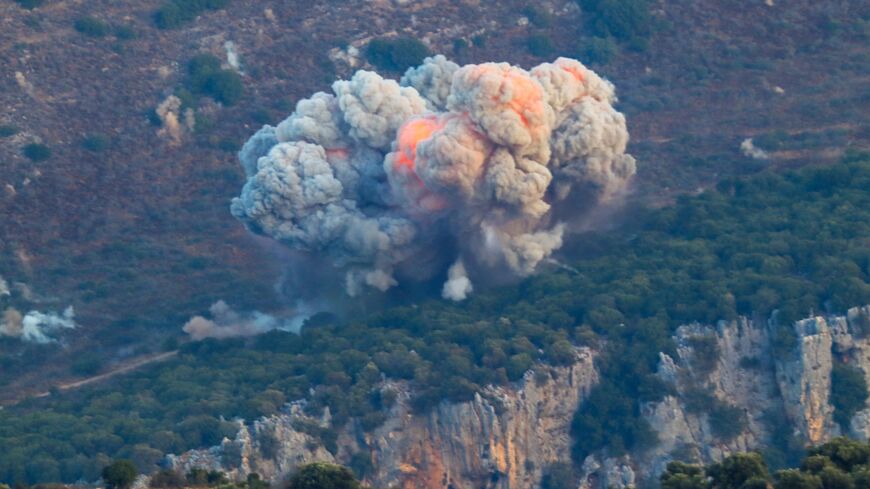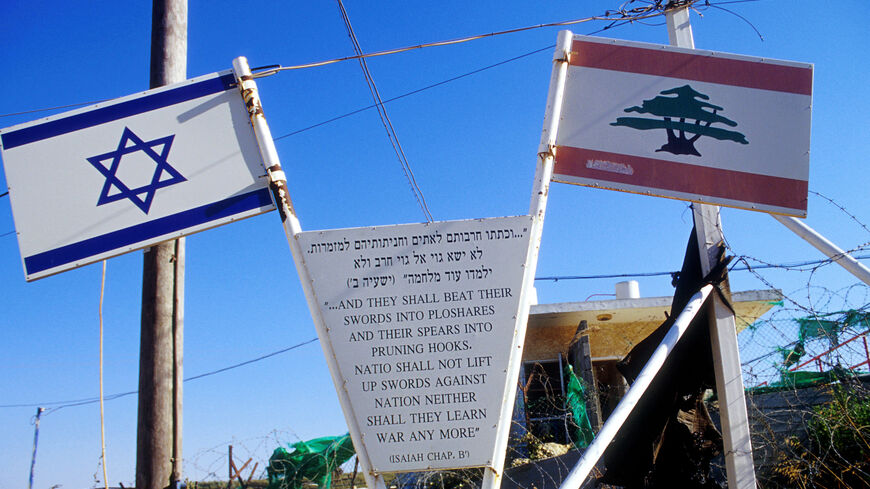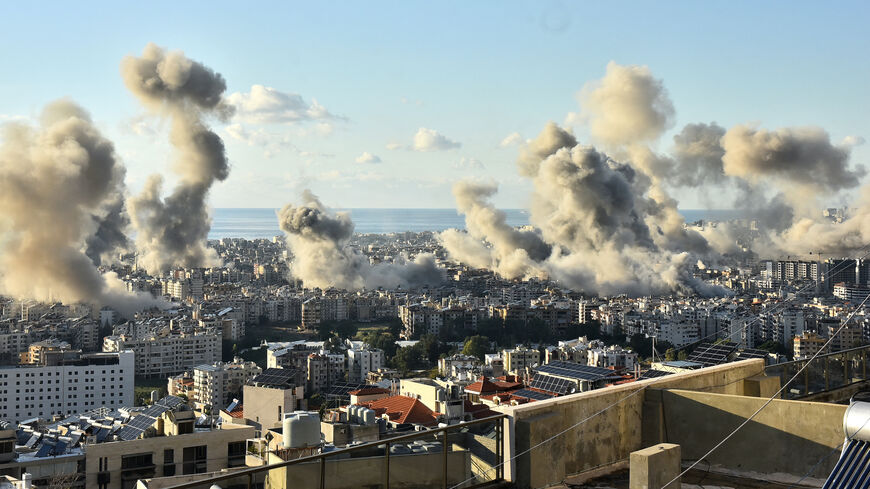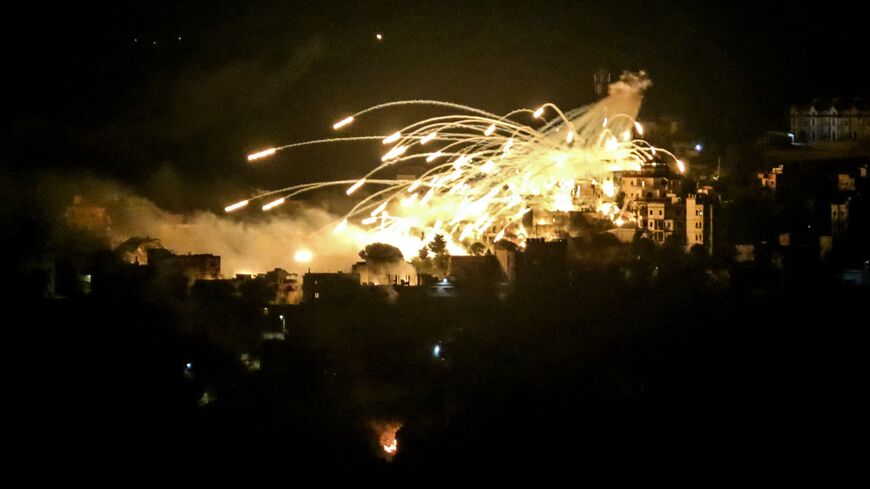Biden says Israel, Lebanon accept ceasefire to end war
President Joe Biden said the parties had agreed to a “permanent cessation of hostilities” after nearly 14 months of war.
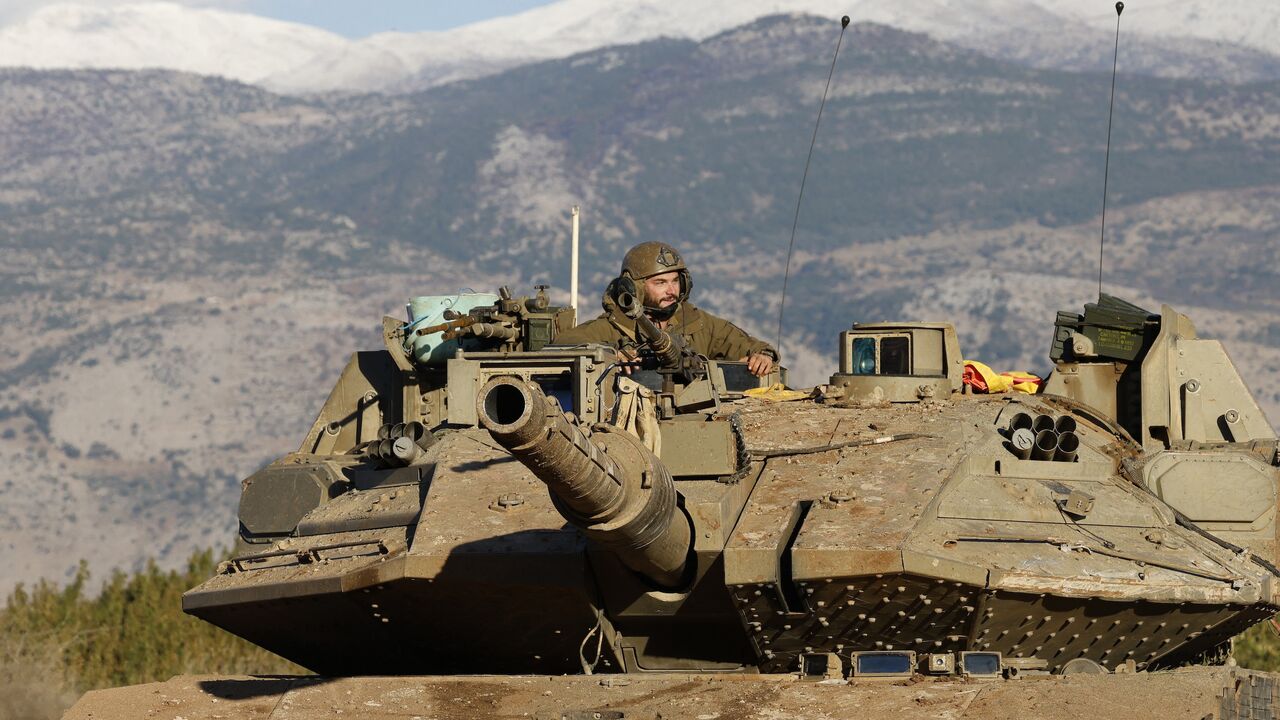
WASHINGTON — The governments of Israel and Lebanon have accepted a ceasefire to end more than a year of fighting between Israel and the Lebanese militant group Hezbollah, President Joe Biden announced on Tuesday.
“Under the deal reached today, effective at 4 a.m. tomorrow, local time, fighting across the Lebanese-Israeli border will end,” Biden said in a televised address from the Rose Garden. "This is designed to be a permanent cessation of hostilities.”
“What is left of Hezbollah and other terrorist organizations will not be allowed, I emphasize, will not be allowed to threaten the security of Israel again,” Biden added.
The ceasefire provides a rare foreign policy win for the outgoing US president, whose aides have spent months seeking an agreement to halt the hostilities between Israel and Hezbollah that escalated into an all-out war in September.
The ceasefire framework is based on UN Security Council Resolution 1701, which ended the monthlong war between Israel and the militant group in 2006 but was never fully implemented. The deal announced by Biden calls for the Israeli military to gradually withdraw from Lebanese territory and for Hezbollah to disarm south of the Litani River during an initial 60-day implementation period.
Thousands of soldiers in the Lebanese army will deploy to the country’s south, alongside an existing UN peacekeeping force known as UNIFIL, to ensure Hezbollah does not rearm itself in the area between Israel’s border and the Litani River.
The United States and France will join an existing oversight body created after the 2006 war that includes Israel, Lebanon and UNIFIL. US troops will not be deployed to the Israel-Lebanon border as part of monitoring efforts, Biden said.
“This is a process that cannot happen overnight or in several days,” said a senior Biden administration official briefing reporters. “Therefore, there is this [60-day] period to prevent any vacuums from being formed.”
The Israeli security cabinet approved the US proposal in a 10-1 vote Tuesday. The country’s prime minister, Benjamin Netanyahu, announced his support for a ceasefire in a prerecorded statement, saying one was necessary to focus on the Iranian threat, to replenish Israel’s weapons arsenal and to isolate Hamas.
Lebanon’s prime minister, Najib Mikati, welcomed the proposal on X, calling it a “fundamental step towards restoring calm and stability in Lebanon and enabling displaced persons to return to their towns and cities.”
US negotiators led by White House envoy Amos Hochstein made significant progress in recent weeks, hoping to secure a ceasefire deal before President-elect Donald Trump takes office in January. A sticking point in the talks had been Israel’s wanting the freedom to respond with military action in Lebanon should Hezbollah violate the deal, a demand the Lebanese government and the Shiite group viewed as a violation of the country’s sovereignty.
Netanyahu said Tuesday that Israel would "respond forcefully to any violation" by Hezbollah.
"In full coordination with the United States, we retain complete military freedom of action," Netanyahu said. "Should Hezbollah violate the agreement or attempt to rearm, we will strike decisively."
Biden emphasized that Israel retained the right to self-defense in ways that are consistent with international law “if Hezbollah or anyone else” violates the deal.
Ahead of the expected deal, Israel worked to inflict maximum damage on Iran-backed Hezbollah with a wave of strikes on the group’s southern Beirut stronghold. Israeli warplanes also targeted buildings in the city center on Tuesday, killing at least three people in the capital’s Nuwairi area, according to Lebanon’s Health Ministry.
Hezbollah was not a formal party to the agreement but gave its unofficial approval via intermediaries. It did not immediately comment on the announcement.
The Lebanese group began firing rockets, drones and missiles into Israel a day after Hamas carried out its deadly Oct. 7 attack. The low-level conflict on the Israeli-Lebanese border escalated in September when pagers and walkie-talkies used by hundreds of Hezbollah members exploded in attacks attributed to Israel. The Israeli military killed the group’s longtime leader, Hassan Nasrallah, in an airstrike before launching a ground invasion into southern Lebanon.
The nearly 14-month conflict has killed more than 3,700 people in Lebanon and over 120 people in Israel, according to authorities in both countries. More than 1.2 million people in Lebanon and over 46,500 people in Israel have been displaced from their homes amid the cross-border fire.
The ceasefire does not address Israel’s ongoing war against Hamas in the Gaza Strip, where the local health ministry’s death toll has surpassed 44,200. Speaking to reporters on Tuesday, Secretary of State Antony Blinken voiced optimism that a ceasefire between Israel and Hezbollah could help end the conflict in the Palestinian territory.
“Hamas has sought from day one to get others in on the fight,” Blinken said. “If it sees that the cavalry is not on the way, that may incentivize it to do what it needs to do to end this conflict.”
Responding to a reporter’s shouted question on whether he could clinch a Gaza deal before leaving office in January, Biden said, “I think so. I hope so. I’m praying.”
This developing story has been updated since initial publication.



